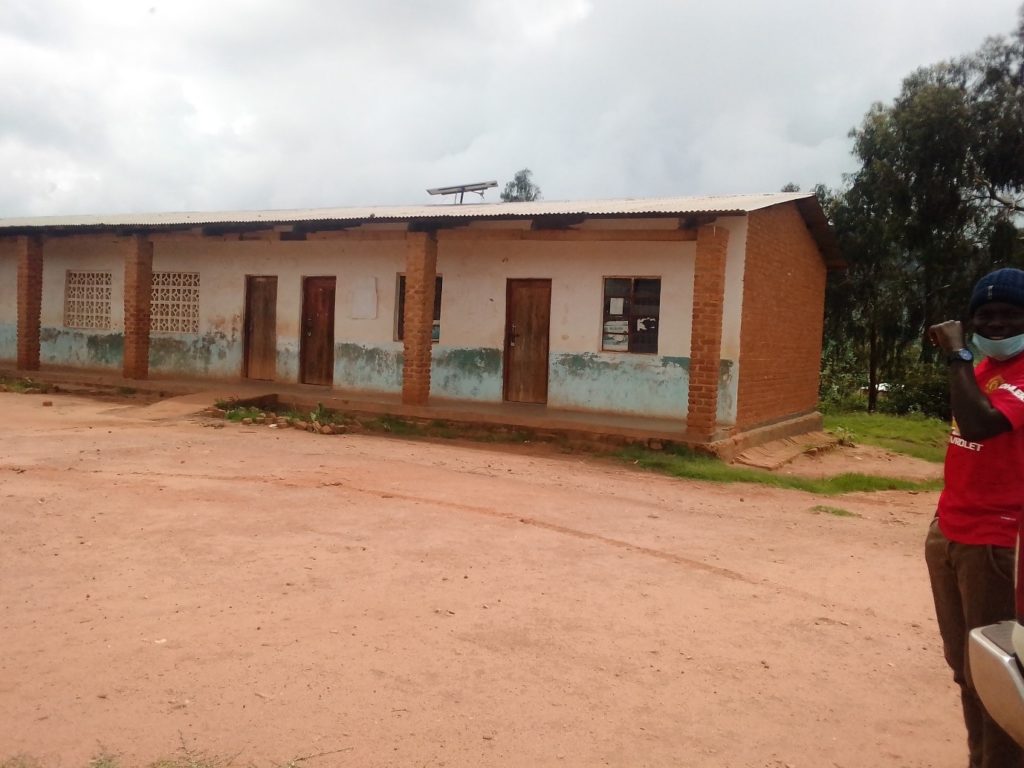Guest Blog by Louis Yona and Estrida Nyirenda
Installation, operation, maintenance and sustainability of solar systems is one of the challenges facing communities, institutions and households in Balaka and Dedza. The problem is partly due to a lack of technical expertise within the communities. It is further compounded by unavailability of approved suppliers of Renewable Energy Technologies (RETs) close to where customers are. Often, installers are sourced outside the impact districts and are rarely monitored during the installation process.
To help reverse this trend, the District Energy Officer (DEO) strand of EASE project includes the training of local technicians in installation, operation and maintenance of solar systems. So far, 20 people, drawn from all the Traditional Authorities (TA) in the 2 Districts have completed a 2 stage training process. The technicians were introduced to their respective Area Development Committees (ADCs) as their point of contact on issues of renewable energy. A WhatsApp Group was created to facilitate cross fertilisation and linkages with the DEOs and other Community Energy Malawi (CEM) MERA certified engineers who are supposed to offer technical support and backstopping either remotely or physically. The technicians then started to engage with their communities. Education institutions were identified as a particular priority; however, early contact confirmed challenges previously encountered by CEM regarding solar PV for education.

In some schools, the renewable projects which were conducted by other stakeholders stopped at the inception stage whereby the equipment was purchased but not installed at the schools. According to Allan Lameck, a local technician from T/A Kasumbu, his visits to some schools has shown that renewable energy equipment which was meant to be used by schools is being used in staff houses because the ones who purchased the equipment for the schools did not install it. This has prompted teachers to attempt DIY installations.
The technicians also noted that financial challenges that rock most schools have contributed to the lack of repairs that are conducted on the renewable energy equipment. In some schools for example, they found that students are not using the system because of a faulty switch and there are no bulbs. School management stated that they could not repair these things because they do not have the money to purchase replacements.”
Permission to visit schools is granted by the local Primary Education Advisor (PEA) and schools have strict policies on child protection and it is a requirement that all those wishing to implement projects should come with proper documentation. Without formal approval and appropriate ID’s the point of entry for local technicians to schools can be protracted and complicated.
To address these challenges, DEOs organised a Round Table Discussion where technicians, District Councils Heads and other stakeholders met. The technicians were allowed to present their experiences as a way to let the councils appreciate the situation on the ground. Following discussions, it was agreed in the meeting as follows:
- That Technicians should go to the respective District Councils and obtain formal Letters of Support. Councils’ issue letters to artisans (bricklayers, carpenters) to approve their involvement in local development projects financed under District Development Fund (DDF) and Constituency Development Fund (CDF).
- That Technicians should also register with their local MP and Councilors as is case with other artisans.
- District Education Managers (DEMs) will issue circular to all schools advising them to welcome technicians when they come and work with them.
- DEOs should acquaint themselves with the District Council Maintenance Procedures and should assume their duties fully. To illustrate about proceedures, is an example of Public Works Department: The Artisans (bricklayers, carpenters) in villages compile reports with BoQs of maintenance works needed. These are forwarded to the Director of Public Works who verifies and produce a report with budgets. This is shared at the full Council and is adopted. Likewise, DEOs should rely on technicians to identify maintenance needs, compile a report to DEOs. DEOs will then issue report with budgets for Council deliberation.
- DEMs will review School Improvement grant (SIG) management and institute a policy that seek to support expenses on solar system repairs
- That CEM should issue Certificates of Attendance to the technicians which should detail course outline as proof that the technicians were trained by CEM
- That together (CEM and Councils) should explore with Community Technical Colleges the possibility of introducing Courses on Design, Installation, Operation and Maintenance of RETs.
Addressing these issues within the appropriate local governance structures is an example of the how DEOs can enable collaborative solutions to be developed by the key stakeholders involved. The DEOs objective is to guarantee that issues of energy are well documented, budgeted and defended at the Council Secretariat.